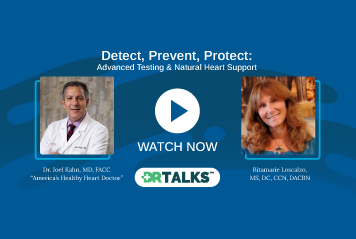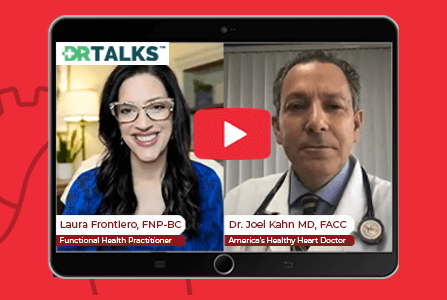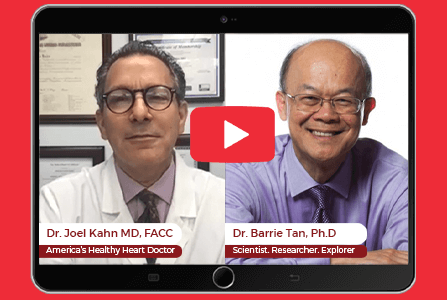At 71, Warren Matthews was healthy, active, and had a clean bill of health - or so he thought. The founder of Xtendlife was blindsided by a build-up of calcification in his cardiovascular system, particularly his aortic valve, which required open-heart surgery. Even with all that Warren was doing to improve his health, he didn't know about the dangers of artery calcification - the invisible threat to heart health.
His hospital wake-up call inspired him to develop CX8, a revolutionary new artery and cardiovascular health supplement. Listen as Warren and Ivor Cummins, the Chief Program Officer for Irish Heart Disease Awareness, discuss this groundbreaking natural solution.
Summary transcript
Ivor Cummins: Welcome to the Fat Emperor podcast, I'm your host Ivor Cummins.
Today we're going to cover an old topic - heart disease - and I'm going to be talking to a pal in New Zealand, Warren Matthews, who had an extraordinary experience all too common unfortunately with severe heart disease, heart valve disease etc.
Warren, great to see you again and hopefully we can have a quick chat about your experience and maybe first you give a very brief kind of intro of yourself and your background before we get into the hard stuff.
Warren Matthews: Hi Ivor, I'm 73 years of age and for the last 20 years my whole life has been centred around health with supplements, mainly because I set up a manufacturing operation to do that.
One of my interests was, and still is, the ocean and about seven or eight years ago I built a boat in New Zealand and started off to Asia.
I have enjoyed really good health because that's been my main focus, I do extensive blood tests twice a year and everything was great – here's a photo of myself on the boat when I was 70. But look what happened a year later, here I am in the ICU flat on my back because I've just had open heart surgery for a replacement aortic valve.
Here I am on the boat when I was 70. But a year later, I was in the ICU
flat on my back...
And I had no idea I had a problem.
All that happened was in 2018 I started getting a little bit of puffiness when I was walking around exercising. But I had a period where I hadn't been doing a lot of exercise I thought, oh well I just haven't been doing enough, I need to do a bit more. But when I did, it actually got worse - just a bit of puffiness no pain or anything like that at all.
Then when I had it checked out, because I finally relented and went to a doctor, they found that after doing some tests with the cardiologist that I had a calcified aortic valve and the opening instead of being four and a half to five square centimeters was only 0.90.
The cardiologist said, "Hey, you're going to have to have surgery and replace your aortic valve".
I said, "Oh yeah, no worries. I'll fix it myself".
I said, "Oh yeah, no worries. I'll fix it myself".
He said, "You better do it quickly because I reckon that you'll be dead inside a year if you don't".
So, I said, "Give me three weeks and I'll do some research on it".
I did some research on it and believed that it was possible to naturally fix it but I'd left it too long – it would probably take two to three years to correct it.
So, I had to relent and have open-heart surgery, which it wasn't the sort of thing I'd recommend to anybody. My son-in-law had the same operation and he, at age 42, died a few hours after surgery. My sister had the same, and she died also.
But I survived.
So that started me on the quest of how it could have been avoided in the first place. Obviously, if I've got calcification in the aortic valve, there's calcification in other parts of my cardiovascular system and it would only be a matter of time before it became a problem again.
It would only be a matter of time before it became a problem again.
One of the things that I'm particularly concerned about was I'd hate to have some calcification in some of the capillaries and end up with a stroke and be a vegetable. I'm only 70 years old and I figured I should have another 20 years of healthy living.
So that's when I restructured the business so I could spend the time researching what could be done to avoid this happening again in the future.
Ivor Cummins: An extraordinary story, but at the same time sadly it's so common.
I remember we were talking back in 2020 about that guy in the American Heart Association in his 50s.
He was on preventative drugs and in reasonable shape and obviously the Head of the Heart Association and he pretty much effectively drops dead of a heart attack just after giving a speech at their yearly convention - luckily, they brought him back.
So, it just goes to show you this is the silent killer. The really sad thing is that this calcification builds with no signs.
Warren Matthews: It is, and of course that's how I end up getting to know you. I came across you as part of my research on the calcification issues for cardiovascular. That resulted in me popping over to see you in Ireland and then you in turn coming over here to New Zealand.
It took about six to eight months to work out this other protocol
to try and help decalcify or improve my arteries...
I had completed the formulation by around the middle of 2019 - my operation was in October 2018. It took about six to eight months of full-time work, to work out this other protocol to try and help decalcify or improve my arteries and my general cardiovascular health.
I had that done by around about the middle of 2019 and then started testing it on myself; I took a double dose for the first few months.
The Pulse Wave Analysis test is non-invasive
and can measure the elasticity of the arteries.
It was at that time I also discovered a process called the PWA, which is a Pulse Wave Analysis test approved by the FDA. It's non-invasive and what's really interesting is that it can measure the elasticity of the arteries.
This is a big thing from a point of view of prevention of heart attack or strokes because if you've got elasticity in your arteries, should you get a blockage it's much more likely that the blockage can get past, and it doesn't stop the blood flow.
If you've got elasticity in your arteries,
it's much more likely that a blockage can get past...
So anyway, I had my first test with the PWA in January 2020, and at that stage I was 72. The end result comes out and they showed what the biological age is when somebody has that test. Mine came out at 56 which I was pretty delighted about given that I was 72 at the time.
They showed what your biological age is. Mine was 56
which I was pretty delighted about given that I was 72 at the time.

I also had my son with me at the same time, he was 42, that was Kirk. Kirk is not as fanatical about his health as what I am and his test came out at over 70.
I thought, "Oh, they've stuffed up the results. They've gone back to front because he's Kirk Warren and I'm Warren James and I reckon I got it mixed up".
I thought, "Oh, they've stuffed up the results".
But when I questioned them on it, they said there's no way that could happen because it gets entered into the computer system and it cannot be switched over. So anyway, I was delighted if that was the case - delighted for me, not so happy for Kirk!
So I got him onto the same formula which I was using and had him do a test a few months later and he had actually dropped down about 10 years, so that was positive.
I kept on with the regime which I had, and I didn't make a lot of changes in terms of lifestyle, but I did make some, mainly as a result of talking to you. I was really a lot more careful about carbs and cut back in particular bread and also reduced the amount of intake and I try to skip lunch wherever I can.
In December last year, 2020, I did another test - same machine, same process.
There had been a further substantial improvement.
I came out at an age of 40 when I was actually 73.

There had been a further substantial improvement in the elasticity of my arteries. I came out at an age of 40 when I was actually 73.
Needless to say, I was pretty happy about that and of course, I feel great and everything's working.
So I now have no worries or concerns about any cardiovascular issues with the protocol that I'm on.
Ivor Cummins: Very good, Warren. and again, "n equals one", it's a cliché now, but "n equals one."
That's quite compelling data because I'm very familiar with the PWA it and it's a very good test.
Arterial elasticity is a great indicator of general arterial health...
Arterial elasticity is a great indicator of general arterial health and obviously when it's got a very good number it's very unlikely to be developing atherosclerotic plaque etc.
So just to summarize, back in 2018 you had the problem - you had extensive calcification, you got the valve replaced.
Then the first test with the PWA is January 2020, you come in with an arterial age of 50 when you're really 72. Kirk comes in and he is 42 but he comes in in the 70s! I remember you told me at the time, and I actually was convinced like you suspected I was convinced they had reversed the results.
I was convinced they had reversed the results.
But when I saw then the reports you sent on and the dates, I realized it's very unlikely they're going to mess that up with two separate tests.
But then the next one is late 2020 and then you come in with an age of 40, so it's going in the same direction, extraordinarily down, which is good obviously. Kirk comes in the 60s and he's been addressing challenges in that period too and he's likewise gone in the right direction.
So you're both taking the formulation at this stage, of all these components that we had discussed, and I checked out the suppliers and the science you're pretty much both by December now on this for a period.
Warren Matthews: Yes, although I must say the change with Kirk is not so dramatic in the respect that he hasn't made some of the other changes he should have made, particularly with related to his diet. In that regard I've been a bit more diligent than he has and probably consequently why I've had better results.
The formulation, of course, definitely has been a big factor
but there's no such thing as a magic pill...
The formulation, of course, definitely has been a big factor in it but it's not the only factor. I've been in this business for the last 20 years and there's no such thing as a magic pill that solves all problems it's got to be a combination of multiple things.
After I had the surgery, the doctor the cardiologist and the surgeon all insisted that I go on a statin drug and an aspirin.
I said, "No way in the world: you guys haven't done your research. If you've done your research properly you wouldn't use a statin."
So, I'm on no medication at all.
I think that pharmaceuticals have a place and a time for temporary use
to deal with a specific issue or a symptom...
I think that pharmaceuticals have a place and a time for temporary use to deal with a specific issue or a symptom, but not long term and certainly not a statin.
And I think that in the case of cardiovascular issues you do not need to have a statin. In fact, I think it's detrimental. We've got a lot of clients that were on statins and had all sorts of issues with it.
I'm now on no medication at all
and my cardiovascular health is excellent...
So any case, I'm now on no medication at all and my cardiovascular health is excellent and I have no concerns about any future heart attack or stroke.
Ivor Cummins: Yeah, and that's a great way to be.
I'll pick you up on your point about synergy - between the diet, the lifestyle, the skipping meals and the formulation.
As you say, it's not just taking vitamin K2, it's not just taking magnesium, it's not just taking tocotrienols, it's a mixture of all of them and they all have pretty good science.
So, if you mix all of those things together in one intervention and then you add getting rid of the bread and the carbohydrates, which no doubt was a major problem in itself, and then, of course, the two meals a day, which is a great one for someone who's beyond middle age.
Put together it's an amazing synergy.
The results are quite extraordinary...
Put together it's an amazing synergy. So those results, which are quite extraordinary - and they need to be replicated of course in large numbers of people etc., that's the usual thing - but it's an amazing result.
I'd like to go through some of that detail because that's what people always want to know - what are the interventions what are the components what's the science behind them?
Warren Matthews: Yes, there's a number of moving parts with this, so if you like I'd be happy to come back shortly and do another one talking about why and how I got those results.
Ivor Cummins: Excellent, thank you, Warren.
Product spotlight

CX8 - Cardio Support
Support your heart and address the main causes of cardiovascular problems with the synergistic action of 8 ingredients.
30 Day Supply | 90 Vegetarian Capsules

Omega 3 / QH Premium CoQ10
Boost your energy levels and support your cardiovascular health with omega 3 fatty acids & bioavailable CoQ10 ubiquinol.
30 Day Supply | 60 Soft Gels


 Supplements
Supplements Bundles
Bundles




















